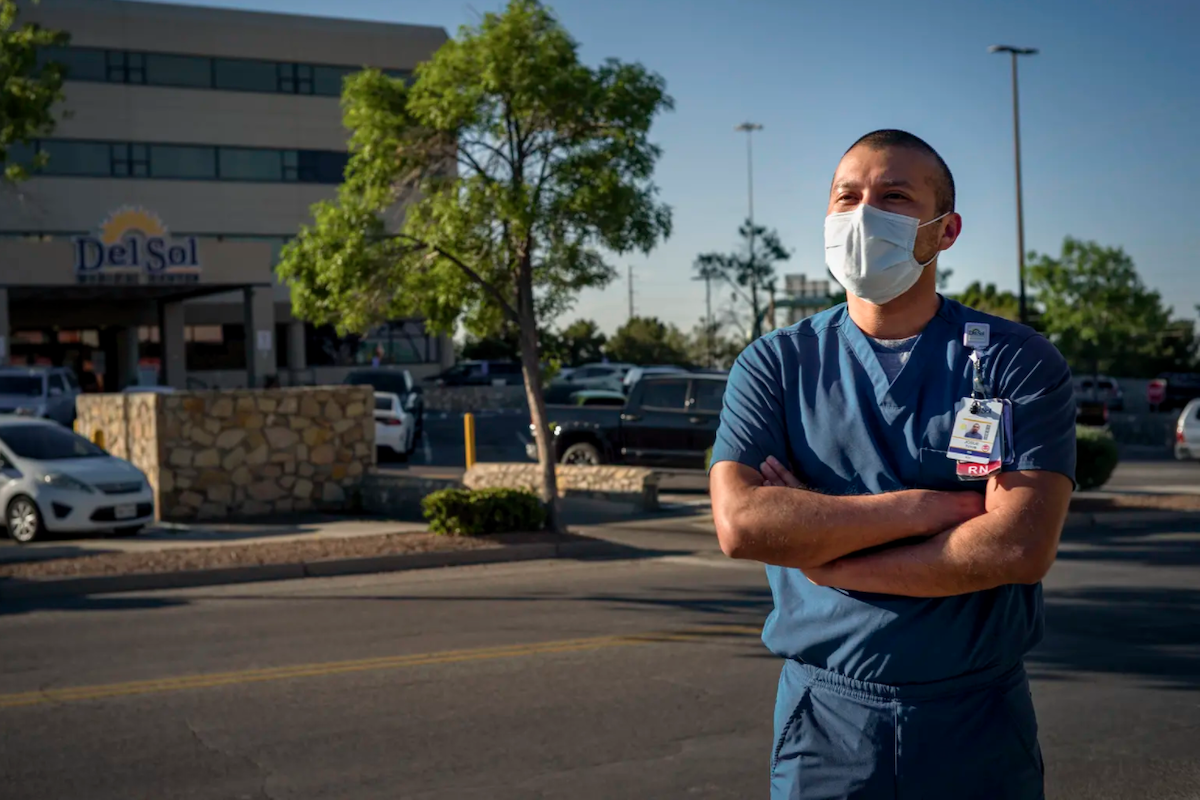Editor’s Note: For more about the author of this opinion piece, read this May 6, 2020 story from The Texas Tribune.
EL PASO — I remember the first COVID-19 patient who entered our hospital.
I was on the nursing team assigned to them, and we were terrified of the unknowns: Was the virus airborne or did it spread through droplets? Would an N95 mask protect us? Some nurses were so frightened, they refused to care for the patient. I did not step away, but I empathized. Our lives were on the line.
My fear of the virus hasn’t been the only thing I’ve wrestled with these past few months. I’ve lost sleep worrying that I won’t be able to continue working as a nurse, or worse, be deported. That’s because I’m a recipient of the Deferred Action for Childhood Arrivals Program (DACA), which gives 660,000 immigrants like myself temporary legal protections. The current administration has threatened to end the program many times and limited our legal protections, even after the Supreme Court blocked President Trump’s attempt to end DACA in June. With the Supreme Court moving farther to the right, we can’t count on it stepping in to save the program next time. As we look to the November election, it’s clear that my job and life in this country are on the line. It’s time to elect leaders who will fight to give us a pathway to citizenship.
America saved me from a life of poverty and lost potential. Back home, my family struggled to make ends meet. The high school I attended was crowded and suffered from gang violence. At 15, I was at risk of dropping out or joining a gang. So my dad, who worked in the U.S. as a gardener, brought me over to work with him and help provide for our family. Once here, I thrived. I started attending church, excelled at school and met an amazing family who took me in after my dad returned to Mexico.
I graduated from Sonoma State University in Northern California, hoping to become a Spanish teacher. But earning credentials required a Social Security number. Instead, I worked odd jobs in construction and walking dogs. I enjoyed working with animals and was hired as a veterinary tech at a pet hospital. I fell in love with medicine but I worried my undocumented status would stand in the way. When President Obama announced DACA, my life changed dramatically. I could now get a driver’s license, a work permit, and live without fear of deportation. I was also eligible to become a nurse.
After graduating from College of Marin’s nursing program, I moved to El Paso, Texas in 2019 to work in an ICU unit. I immediately bonded with our patient population, the majority of whom speak Spanish. I love being able to interpret for other healthcare providers and connect with patients in their own language. The U.S. is desperately in need of nurses, particularly bilingual ones. The number of job postings nationally for bilingual healthcare workers has nearly tripled since 2014, according to New American Economy. Yet 62,000 Dreamers work as healthcare providers and are at risk of deportation.
I enjoy helping my community. With COVID-19, some patients stay in the ICU for a long time, and I’ve grown close with many patients and their families. One Hispanic man was under my care for weeks, but when he began to decline, his family was in Mexico and couldn’t come to the U.S. to say goodbye. When he died, I was heartbroken. But I’ve also seen many patients improve and even recover. It’s rewarding to know that my skills and training can help save lives.
When that first patient came into the hospital, I volunteered to care for them, because despite my fears, I knew I had a responsibility to my team, the patient, and this country. Although America disappoints me at times, particularly its ongoing injustices toward people of color, the United States has given me incredible opportunities. I owe everything to this country. I’ll never stop fighting for better laws or caring for its people. I hope others will fight for me as well, to continue living and working in the country I call home.
***
Josué Tuyub is an ICU nurse at Del Sol Medical Center in El Paso, Texas.



